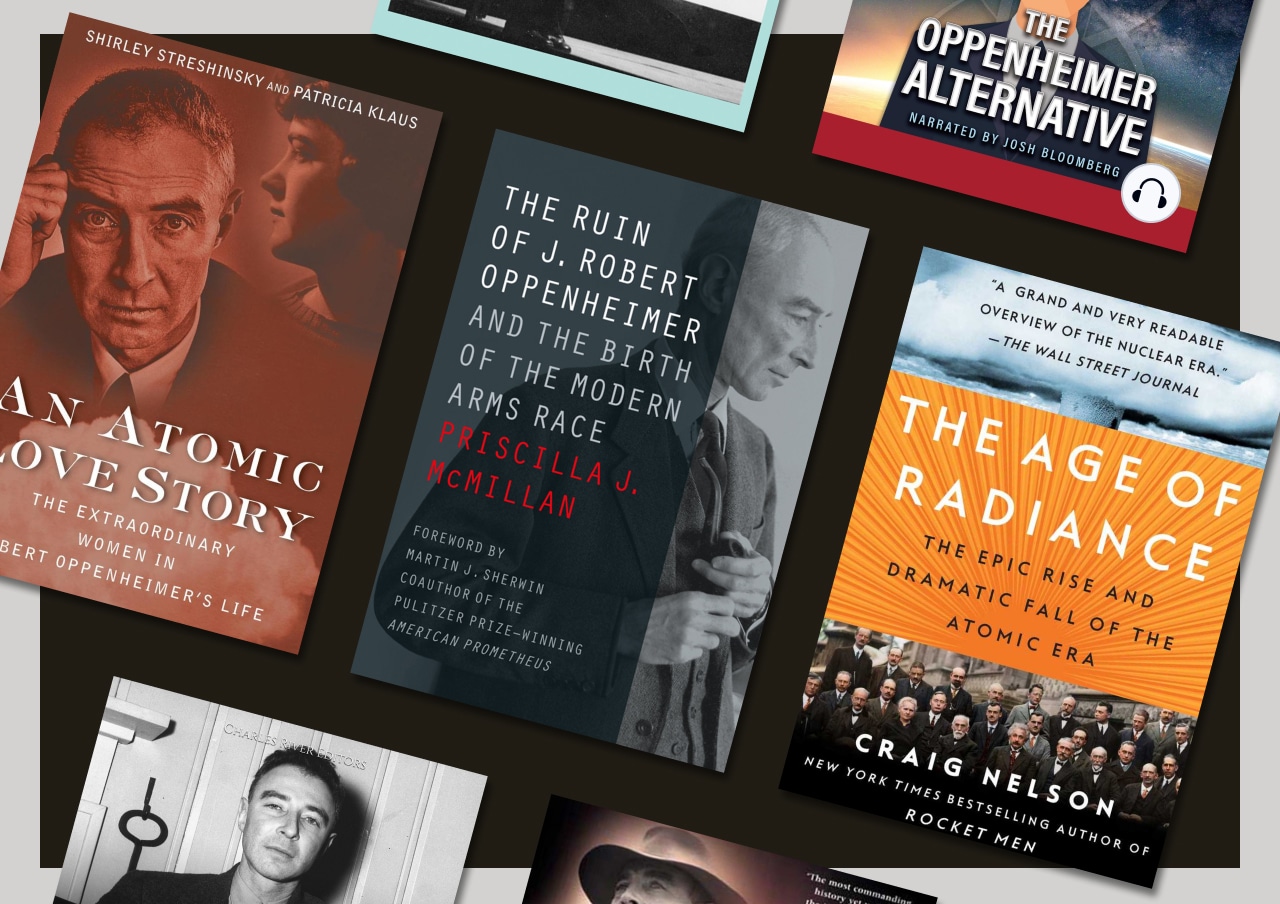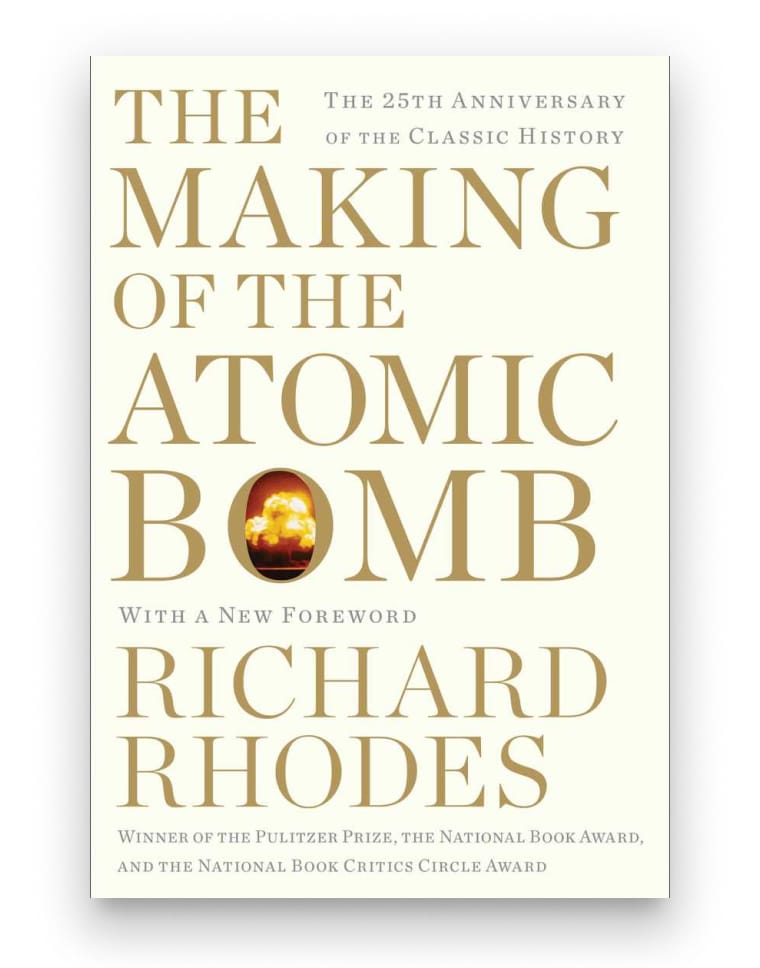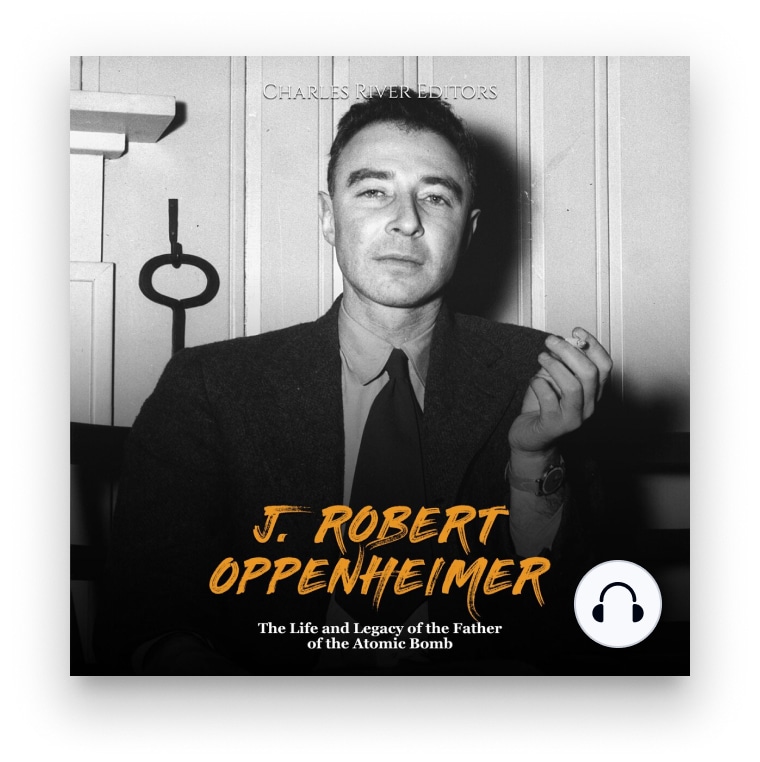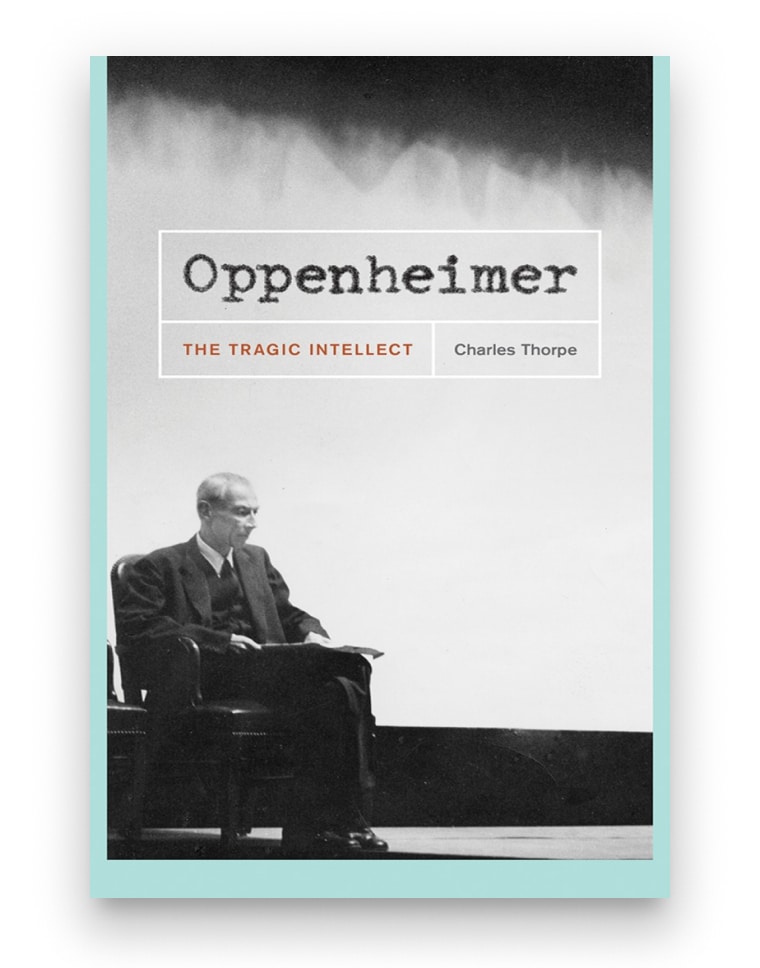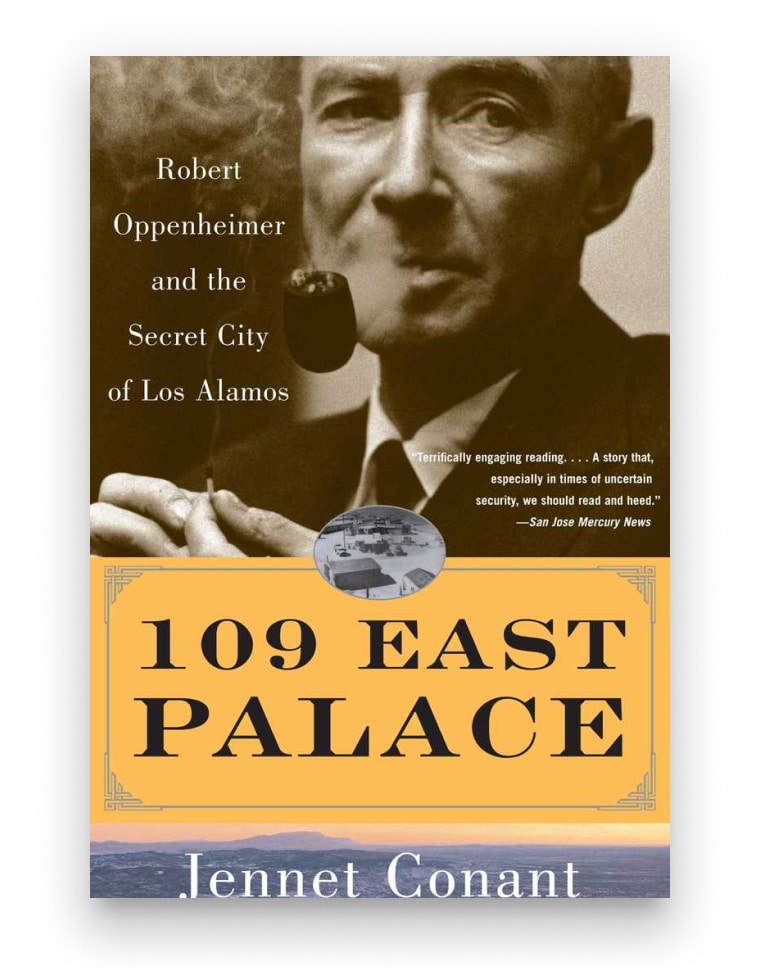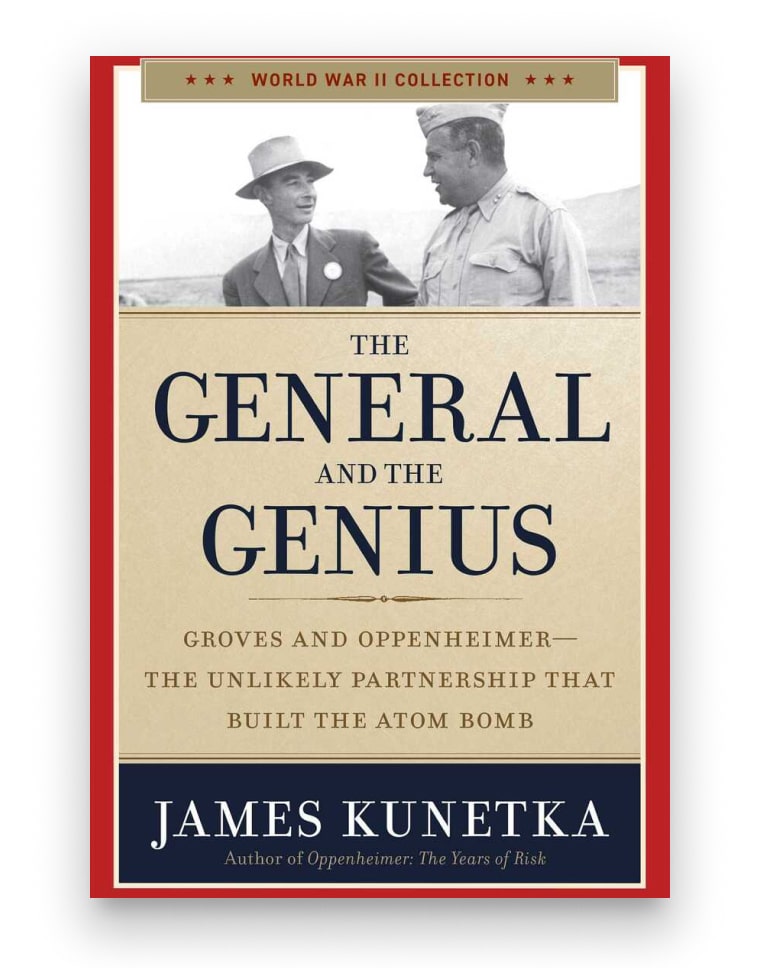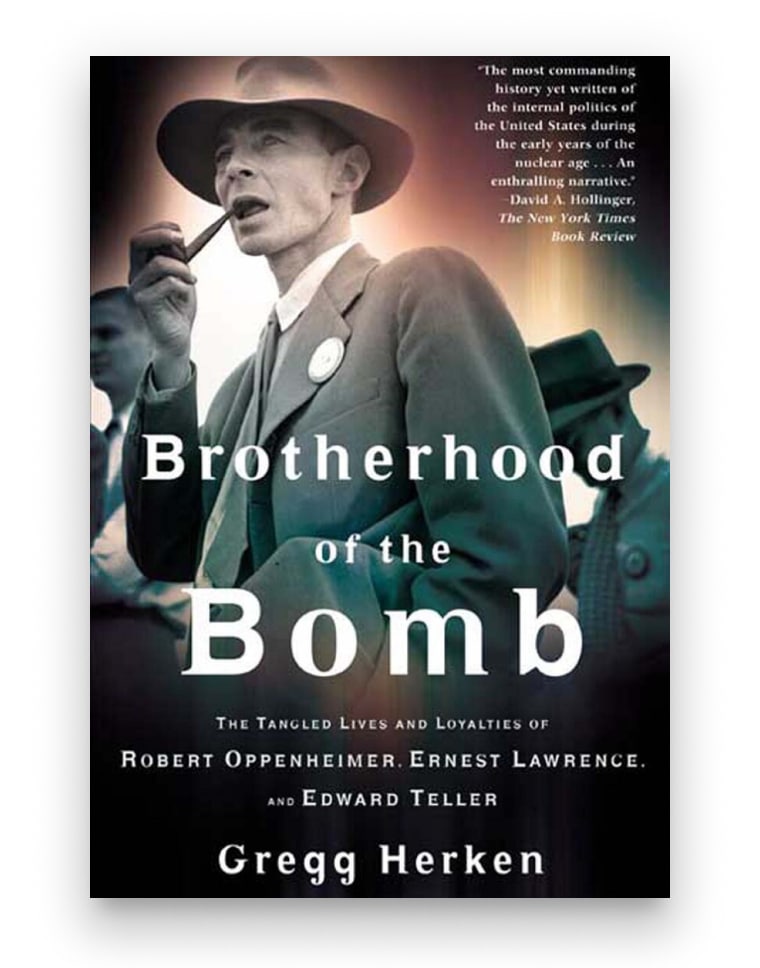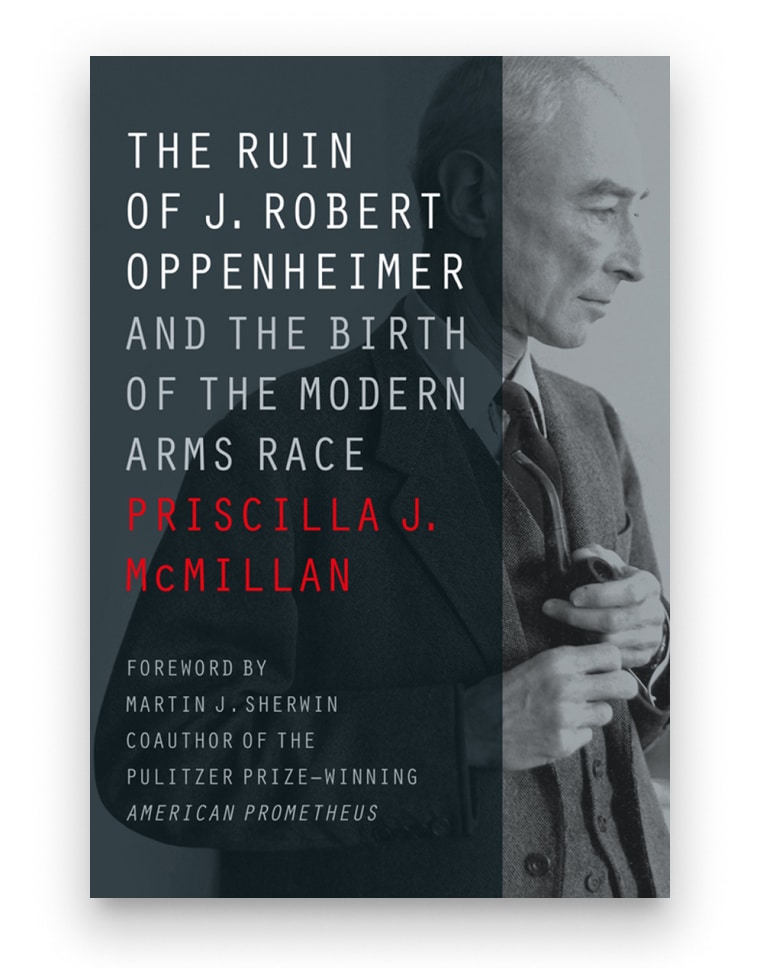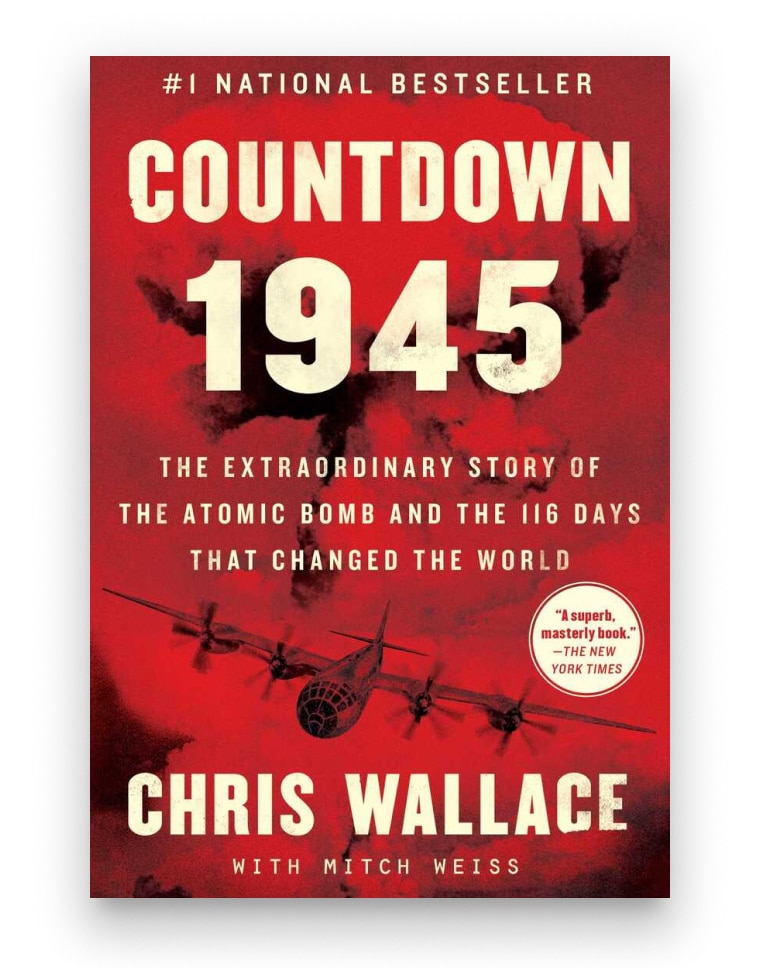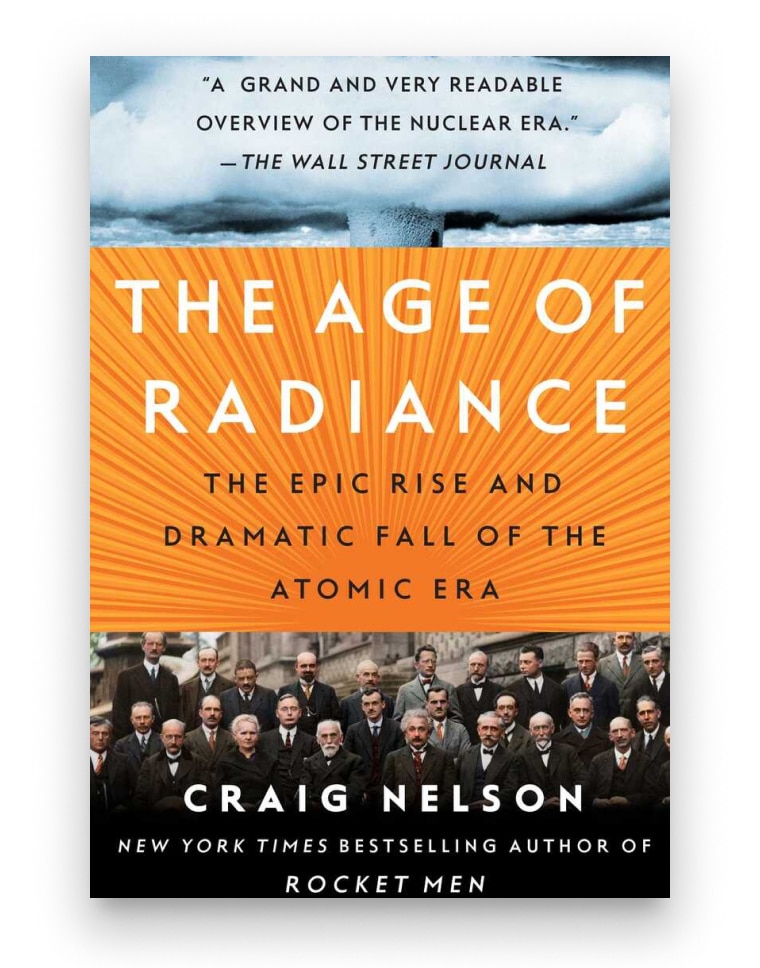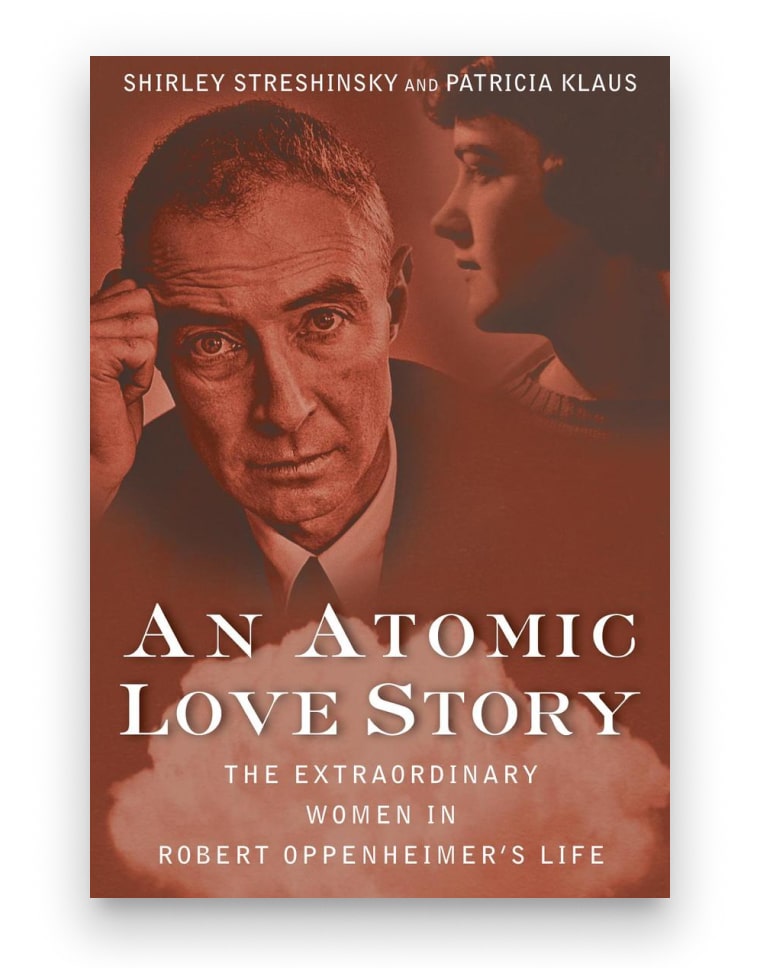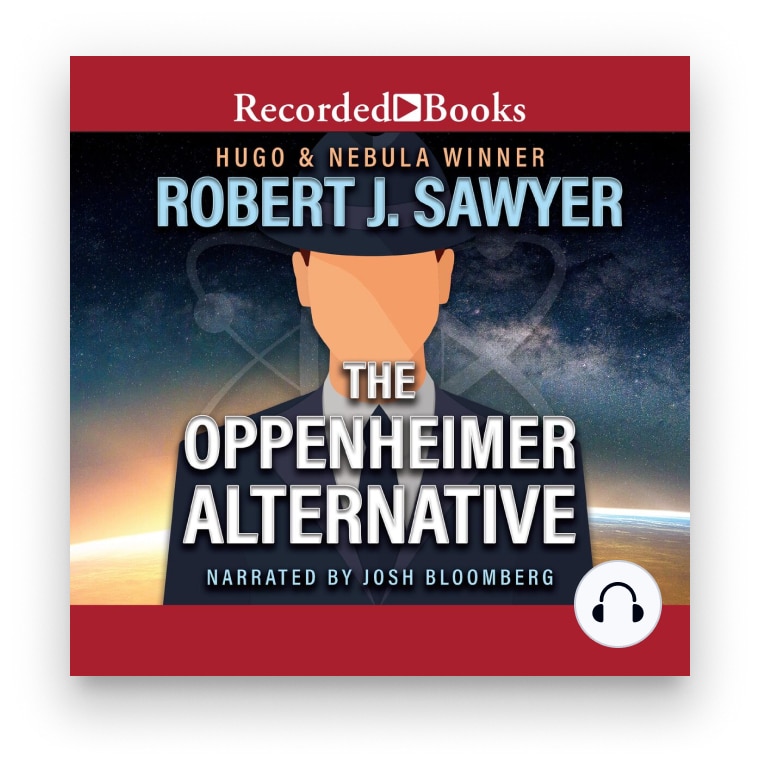
“Science is not everything, but science is very beautiful.” So said the man we know today as “the father of the atomic bomb,” J. Robert Oppenheimer. Best known for leading the Manhattan Project, Oppenheimer changed the tides of Word War II — and history itself — while also leading vital conversations about ethics in scientific development. (The irony isn’t lost on us.)
It’s true: His story is complex. Naturally, we recommend turning to Oppenheimer books for insight. These 11 titles are sure to satisfy your curiosity, whether you’re a science and history buff, looking for the best books about the making of the atomic bomb, or you’re wondering what to read after seeing Christopher Nolan’s Oppenheimer (the perfect segue into a Barbie book list).
1. The Making of the Atomic Bomb by Richard Rhodes
If you’re curious about Oppenheimer’s pivotal breakthrough, there’s no better place to start than The Making of the Atomic Bomb, which won a Pulitzer Prize, a National Book Award, and a National Book Critics Circle Award.
Acclaimed historian and journalist Rhodes starts at the beginning, taking us through the development of the A-bomb and the history of nuclear physics itself. The author balances scientific facts with rich profiles of those who contributed to the development of the weapon, including — of course — J. Robert Oppenheimer.
2. J. Robert Oppenheimer by Charles Rivers Editors
How did the son of an artist and a textile importer become the father of the atomic bomb? Learn the essential details of Oppenheimer’s life and work, from gifted child to leader of the Manhattan Project to post-war villain. Straightforward and concise enough to digest in a single afternoon, this audiobook acts as an informative primer before you dive into more detailed books about Oppenheimer.
3. Oppenheimer: The Tragic Intellect by Charles Thorpe
Thorpe’s Oppenheimer blends biography with sociological study, covering not just the highs and lows of the subject’s life but also the factors that led to his damaged reputation. This is an incredibly nuanced picture of how scientists, led by Oppenheimer, were torn between their ethics and their loyalty to the American government.
4. 109 East Palace by Jennet Conant
The Manhattan Project unfolded in secret from a reclusive enclave in New Mexico, where Oppenheimer recruited thousands of scientists and their families to live for the duration of the assignment.
Based on interviews with a key member of the project, Conant (Tuxedo Park) delves into the personal stories, ethical dilemmas, and historical context surrounding the atomic bomb, with much focus on Oppenheimer’s leadership. Ultimately, it’s a captivating nonfiction narrative that puts people at the forefront of a significant moment in history.
5. The General and the Genius by James Kunetka
There’s only one father of the atomic bomb, but the success of the Manhattan Project can also be attributed to a partnership between Oppenheimer and Army General Leslie R. Groves (played by Cillian Murphy and Matt Damon, respectively, in the Oppenheimer film).
Kunetka explores their contrasting backgrounds, personalities, and leadership styles, plus the similarities that led to a successful, if surprising, collaboration.
6. Brotherhood of the Bomb by Gregg Herken
Heavily researched and engagingly presented, Brotherhood of the Bomb is a portrait of the two physicists who were instrumental in Oppenheimer’s A-bomb breakthrough: Ernest Lawrence, a Nobel Prize winner, and Edward Teller, “the father of the hydrogen bomb” (and Oppenheimer’s eventual enemy).
Herken goes beyond profiling the men and their teamwork, exploring their unique stances and roles after WWII, when the scientific community was conflicted about patriotism, ethics, and the role of science in each.
7. The Ruin of J. Robert Oppenheimer by Priscilla J. McMillan
How did a scientist who helped bring WWII to an end fall so catastrophically from grace? Not only did Oppenheimer lose his security clearance, but he also faced allegations of Communist ties.
These accusations were unfounded, asserts late historian McMillan, and rooted in fear mongering by the U.S. government. This book explores Oppenheimer’s trial and the ensuing ripple effects in the American scientific community.
8. Countdown 1945 by Chris Wallace
To truly understand Oppenheimer’s legacy, we must have the full picture — including the war, President Truman’s (late) involvement in the Manhattan Project, and those who ultimately dropped the A-bombs. Wallace covers these topics and more in a riveting step-by-step account of the months leading up to the world-changing events of August 1945.
9. The Age of Radiance by Craig Nelson
Nuclear power largely defined the 20th century, as humans gained the ability to destroy the planet with atomic bombs and create enough energy to sustain the world’s growing population.
This radioactive history spans from the discoveries of X-rays to the destruction of the Fukushima nuclear power plant, revealing the spectrum of nuclear’s abilities to heal and harm. Nelson also provides vivid portraits of the players involved, including Oppenheimer.
10. An Atomic Love Story by Shirley Streshinsky
Much has been written about Oppenheimer’s brilliant breakthroughs, but Streshinsky tackles a different side of the man. An Atomic Love Story explores the three women who had a significant impact on Oppenheimer, including his wife, Kitty Harrison. These relationships undoubtedly affected his life trajectory, and understanding them paints a fuller picture of his story.
11. The Oppenheimer Alternative by Robert J. Sawyer
The idea of nuclear weapons powerful enough to destroy the planet sounds like the stuff of science fiction, so it’s only natural that Oppenheimer stars in Sawyer’s speculative alternative history.
In this fictional account, the Manhattan Project’s success is short-lived after the discovery of an impending disaster. Only the combined brilliance of Oppenheimer and Albert Einstein can save the world. Every character in this race-against-time scientific adventure is a true historical figure.


